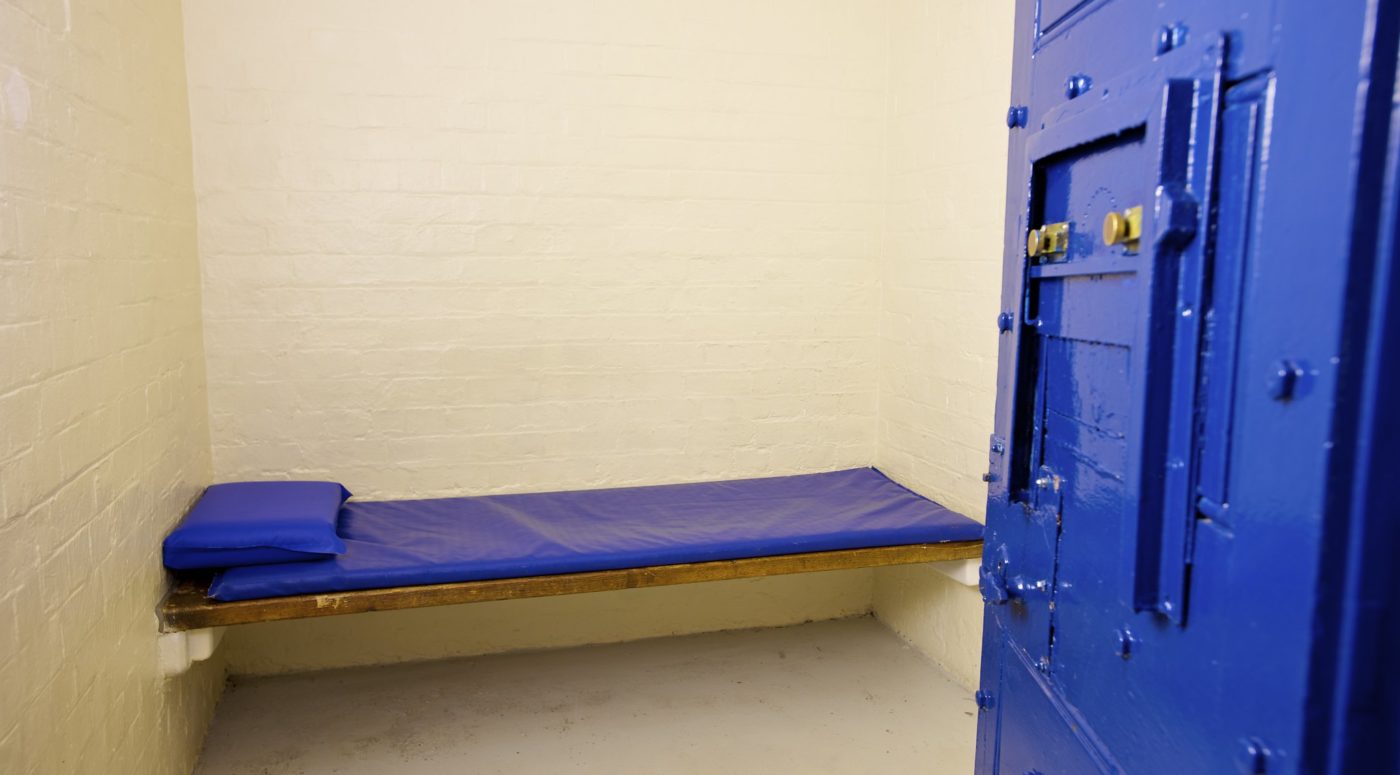

A strip search by the police is a frightening prospect. Worse still is the possibility that it took place unnecessarily. In 2019, the BBC reported that in a 12-month period the Metropolitan Police had strip-searched over 10,000 detainees, 16% of the total number of detainees. Strip searches were disproportionately carried out against Black, Asian, and Minority Ethnic detainees. A large number of those strip searched were under the age of 18. HM Inspectorate of Constabulary, Fire and Rescue Services (HMICFRS) said that not all of these strip searches were necessary.
If you have been subjected to a strip search that you feel was unnecessary, perhaps you felt powerless and vulnerable when it was taking place. The good news is that police have strict protocols that they are legally bound to follow when conducting a strip search. If they failed to adhere to this code of conduct, you may have grounds for a complaint or even a civil claim for compensation. This article explains the law surrounding body searches, strip searches, and intimate searches. As a suspect, knowing your rights is vital. By being clued up, you can protect your rights and hold the police accountable for their behaviour.
What is a strip search?
To understand police search powers, it helps to know about the different types of police searches that can take place in England and Wales.
What clothing items can be removed in a normal stop and search?
The exercise of stop and search powers has increased 24% between 2020 to 2021. If you are subject to a stop and search, it helps to know the extent of police powers. These are set out in PACE Code A. In the course of a normal stop and search, a police officer can only ask you to remove outer layers of clothing. These could include a coat, gloves, a hat, but not a face covering. If it is reasonably believed that you are wearing an item in order to disguise your identity, you can be ordered to remove it. Police officers are entitled to put their hand inside your socks or headwear if they believe something is concealed inside. If the officer wants to search further, they must provide a reason.
More thorough search
If the police officer wants you to remove any other items of clothing beyond what can be removed in a normal stop and search, this must be done outside of public view. A ‘more thorough search’ could involve the removal of a t-shirt or sweater. It could also involve the removal of religious headwear such as a turban or hijab. This can be done in the back of a police van, or somewhere else that is out of public view. A more thorough search must be done by an officer who is the same sex as the suspect.
Strip search
Strip searches are governed by PACE Code C, which was last updated in 2019. A strip search may take place only if it is considered necessary to remove an article that a detainee would not be allowed to keep, and the officer reasonably considers that the detainee might have concealed such an article. A strip search involves the removal of anything more than outer clothing. It can only take place at a police station or at a designated police area such as a police tent. A strip search must be done outside of public view, and somewhere that officers or anyone else of the opposite sex cannot see. The search must be conducted by an officer of the same sex as the suspect. There must usually be at least two people present (unless in an urgent case where there is risk of serious harm to the detainee or someone else).
Intimate search
An intimate search is a physical examination of the suspect’s body orifices other than the mouth i.e. the vagina or the anus. These searches can only be conducted if authorised by an officer of the rank of inspector or above who has reasonable grounds to believe that the suspect may have concealed anything that they could or might use to cause physical injury to themselves or others at the police station, or a Class A drug that they intend to supply to another or export.
An intimate search should usually be carried out by a registered nurse or a medical practitioner, unless an officer of at least inspector rank considers that this is not practicable, in which case it can be carried out by a police officer. The search can be carried out at a hospital, surgery, other medical premises, or, if the search is for an item that could be used to cause physical injury, it can also be carried out at the police station.
If the search is for drugs, the officer conducting the search must obtain the written consent of the suspect. If you refuse consent, the officer must warn you that your refusal could harm your case at trial. Before an intimate search is conducted, you must be informed of why it is being carried out, and of the fact that it has been authorised by a suitably senior police officer.
Strip search or intimate search of a person under the age of 17
If you are under the age of 17, an appropriate adult must be present during the strip search or intimate search. An appropriate adult is a trusted friend over the age of 18; they could be a relative, friend, or social worker. The appropriate adult can be of the opposite sex if that is the person that you have chosen. If you would prefer, the search can take place in the absence of the appropriate adult. If you are a young person who is to undergo an intimate search, your consent must be given in the presence of the appropriate adult.
How is a strip search conducted in the UK?
A strip search must take place out of public view. In order to minimise your embarrassment, you should not usually be required to remove all of your clothes at once. Usually you will be allowed to remove all the clothing above the waist and redress, before removing the rest of your clothing. The search must be conducted as quickly as possible, and you should be allowed to dress as soon as the procedure is complete.
If it is necessary to assist the search, you can be asked to hold your arms in the air, or stand with your legs apart and bent forward so that a visual examination can be made of the genital and anal areas. Note that the officer may not make physical contact with your body orifices as part of a strip search (this would constitute an intimate search).
What are your rights when you are strip searched?
If you are strip searched, it helps to know your rights. Here is some advice to keep in mind.
- Don’t be afraid to speak out and inform officers if you believe that they are not acting in accordance with the law.
- If you feel uncomfortable about how the search is being conducted, or the location where the search is being carried out, inform the officer who is doing the search, and ask them to put it in your records. For example, you could ask for the search to take place in a more private space.
- You have a right to ask questions about why the search is happening and what will happen next. You also have a right to film the search, although you must ask the officer conducting the search for permission before you switch the camera on.
- You are entitled to a copy of the search form, or where this has been digitised, the reference number for the search form that will enable you to retrieve a copy from the police station. You can request a copy of the search form any time within 3 months after the search.
- The search must be carried out with regard to your dignity, sensitivity, and vulnerability. This includes your health, hygiene, and welfare needs. The officer conducting the search should make all reasonable efforts to secure your cooperation and minimise embarrassment.
What should you do if you believe that you were strip searched unlawfully?
If you believe that a strip search was carried out unlawfully, you can make a complaint to the police force who carried out the search. You can also speak with a solicitor specialising in civil liberties to discuss bringing a civil action against the police for compensation. Because claims under the Human Rights Act 1998 must be lodged within 12 months of the incident, you should speak with a solicitor as soon as possible if you think that you may want to pursue a claim. At Stuart Miller Solicitors, our civil liberties team are ready to help. Contact us for a no-obligation consultation today.
OUR COMMITMENTS TO YOU:
-
Responsive
A legal expert will consult you within 24 hours of making an enquiry.
-
Empathetic
We will always treat you with trust, understanding and respect.
-
Specialised
Your case will be handled by an expert who specialises in your type of offence.
-
Proactive
We will take early action to end proceedings as soon as it is practically and legally possible to do so.
-
Engaged
You will be kept updated on your case at all times. We will provide a named contact available to answer your questions.
-
Caring
We understand this is a difficult and stressful time for you and your family. Our team will support you every step of the way.
-
Tenacious
We will never give up on your case. We fight tirelessly to get you the best possible outcome.